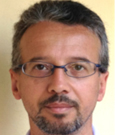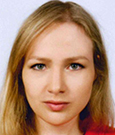
Vladimir Benes
EMBL Heidelberg,
Germany
EMBL Course
EMBL is committed to sharing research advances and sustaining scientific interaction throughout the coronavirus pandemic. We are delighted to announce that the conference is going virtual and invite you to join us online. The virtual conference includes talks from invited speakers, short talk presenters, digital poster sessions, online group discussions and networking opportunities.
Systems biology is a still expanding field of research aiming to understand at the molecular level how cells, tissues and organism operate in their biological context. Among the key technologies driving this forward are next-generation sequencing and proteomics, as they provide powerful means to determine global expression levels of genes and proteins. Both fields have matured to a degree that they have now become accessible to researchers in many areas of biology. During this course participants will gain theoretical insight in the structure of sequencing and proteomic data, and will receive training in data analysis using various computational tools.
This course is targeted at biologists and biochemists who are (starting to be) involved in both next-generation sequencing and mass spectrometry-based proteomics, but who are not experts in these fields.
The aim of this practical course is to provide insight in techniques that are frequently used for transcriptome and proteome analysis, and to provide hands-on experience turning primary data into information that can be used for further biological interpretation. To achieve these goals, participants will gain insight in the basic principles of gene expression analysis (RNAseq data quantification and differential expression analysis), protein identification and quantification, and they will be trained in the use of software tools to analyse sequencing and proteomic data (SearchGUI, PeptideShaker, MaxQuant). In addition, the course will provide insight in the complementarity of transcriptome and proteome data by their integrative analysis via Cytoscape.

EMBL Heidelberg,
Germany

University of Turin,
Italy

National University of Singapore,
Singapore

Ghent University,
Belgium

German Cancer
Research Centre,
Germany

EMBL Heidelberg,
Germany

VIB University of Ghent,
Belgium

University of Ghent,
Belgium

EMBL-EBI Hinxton,
UK

EMBL Heidelberg,
Germany

EMBL Heidelberg,
Germany

EMBL Heidelberg,
Germany

University of Turin,
Italy

German Cancer
Research Centre,
Germany

VIB University of Ghent,
Belgium

EMBL Heidelberg
Germany
Date: 2 - 7 Feb 2020
Location: EMBL Heidelberg